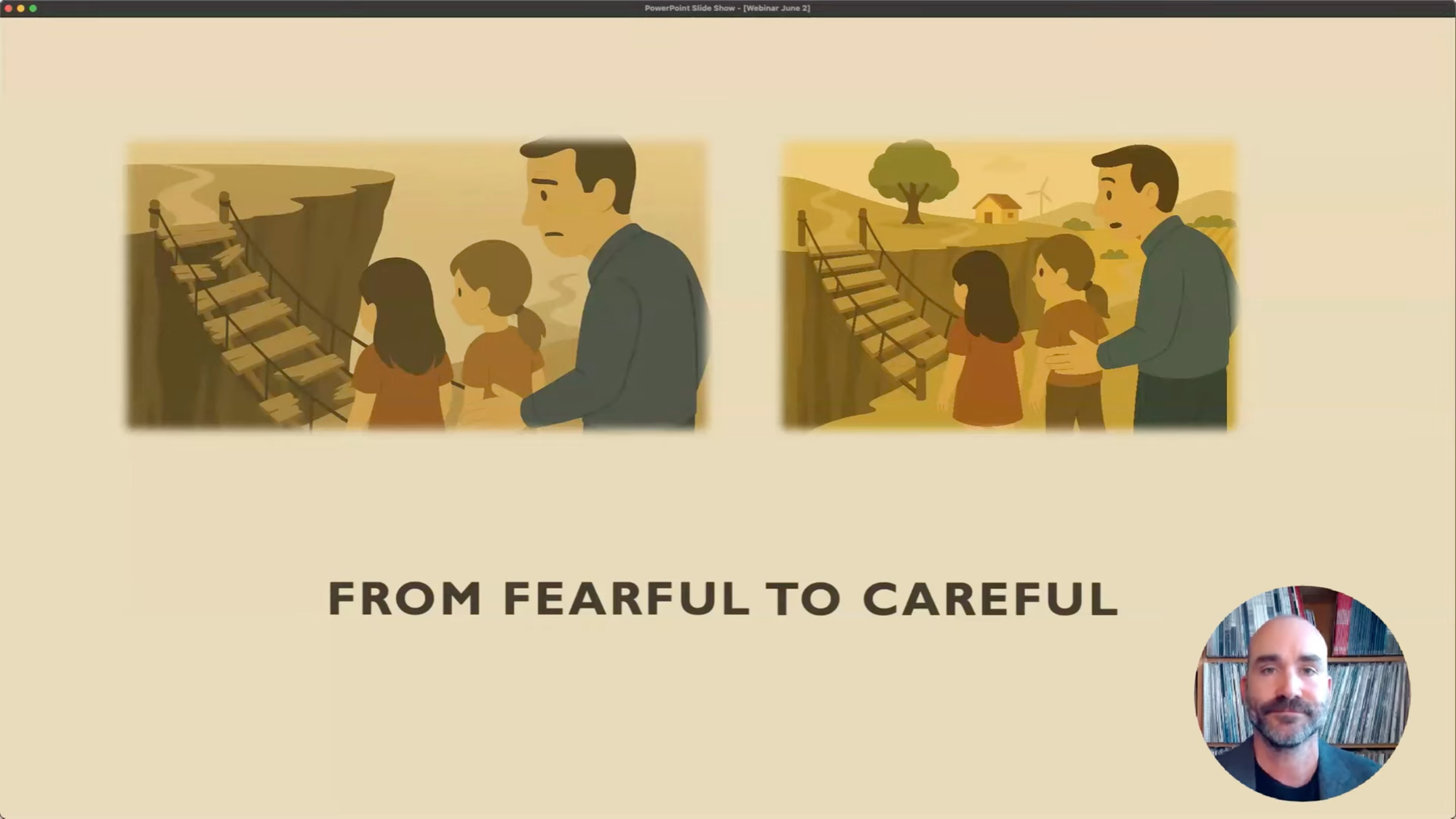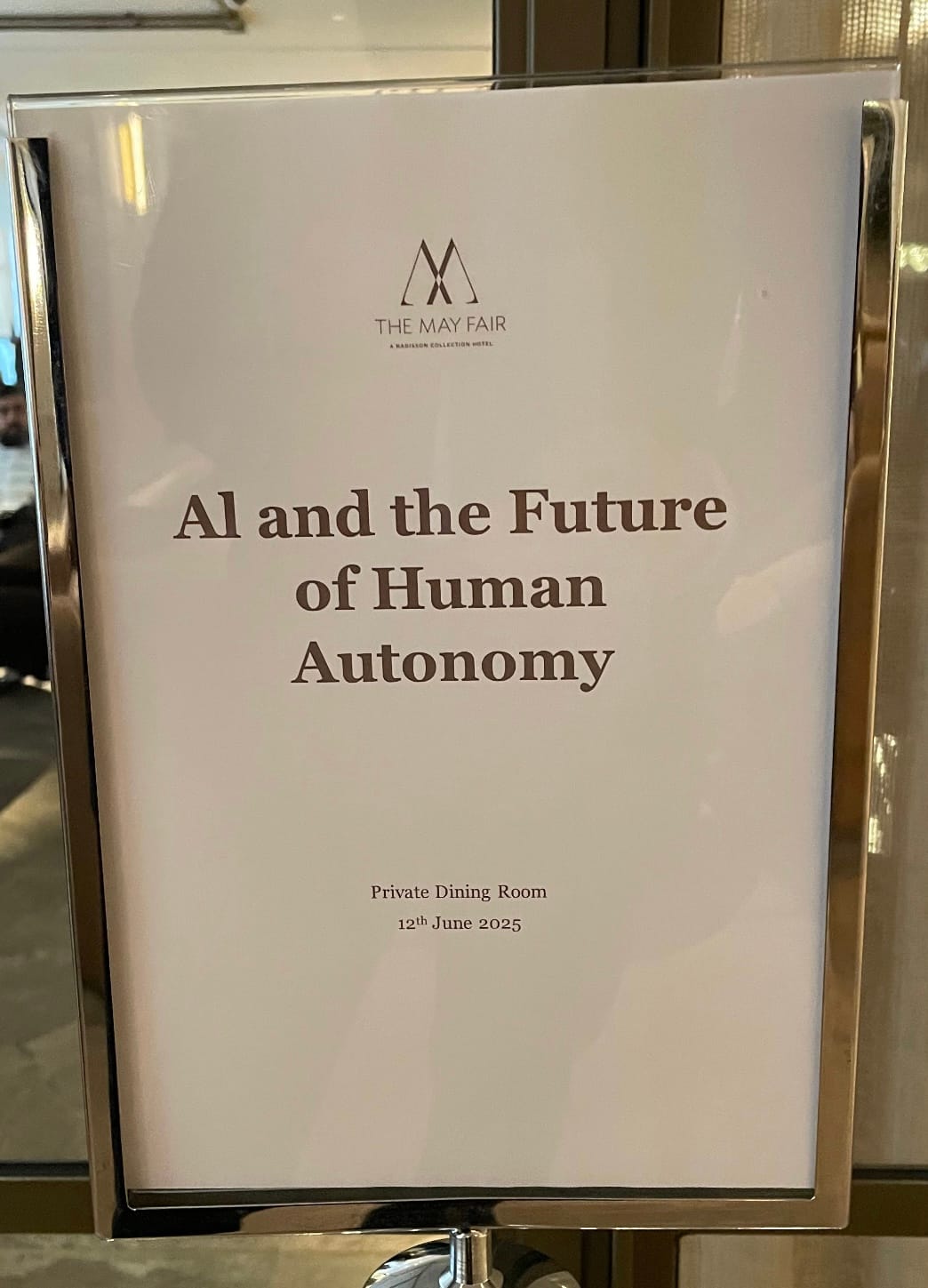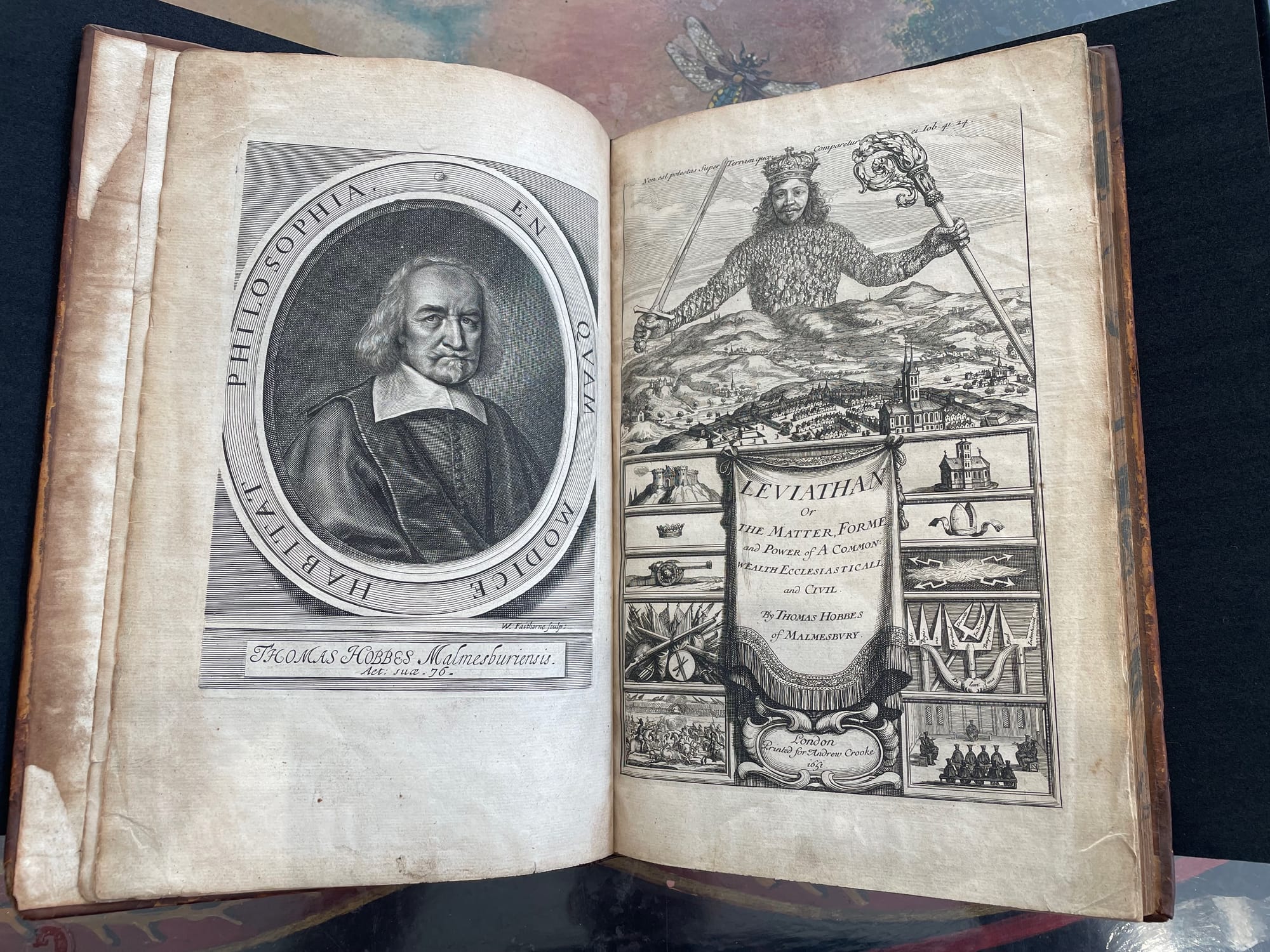AI for Creative Learning, Caring about Values, and a First Edition of Leviathan
Dispatches from June: My trip to London and Oxford, a talk on values and care, and a webinar introducing Curiosity Craft’s approach to AI for shared engagement.

I am currently in Oxford, England, visiting Topos Institute's Oxford office, as well as the Laboratory for Human-Centered AI at Oxford University. I give a talk today (Thursday, June 19) at Topos, titled "Who Cares About Values?" This presentation presents work from collaborative research I'm developing with David Spivak of Topos, who came up with the catchy line I'm using as the title.
Here is the abstract for the talk:
Today it is common to hear about “human values,” and the importance of designing technologies that “align” with our values. But where does this notion of “human values” come from? In this talk I trace the history of the concept of "human values." I connect this notion with an evolution in our understanding of human autonomy, and argue that both are inadequate abstractions for the challenges of being human in our technological age. Finally, I introduce the notion of care as an alternative to “values,” showing how it furnishes a subtler map for imagining and shaping our relationship to technology today.
Last week I was in London, invited to participate in a conference on "AI and the Future of Human Autonomy." The event was convened by Brendan McCord of Cosmos Institute and supported by an organization called the Liberty Fund (which I had heard of before on account of their being the publisher of many works by Michael Oakeshott, whom Fernando Flores was often interested in discussing with me). It was a wonderful two days of conversation, with a fascinating, friendly, and distinguished cast of characters. I will share some further reflections on the experience in a forthcoming post.

During the conference, a few of us took a little field trip one afternoon to Shapero Rare Books, who showed us some of their marvelous collection, including this first edition of Thomas Hobbes' Leviathan (1651)!

When I first read Hobbes as an undergraduate I was blown away. His mechanistic account of human motivation gives a grounding for morality and politics that completely bypassed any appeal to supernatural forces. However, I now see that such hard-nosed, naturalistic explanations of human life have become a Leviathan of their own, constraining our imagination of what it means to be human to individual preferences, calculations, and mechanical responses.
The booksellers in Shapero books were kind enough to humor and laugh with me as I reenacted one of my favorite scenes from Howard Hawks' The Big Sleep (1946), uttering the line, "Would you happen to have a Ben Hur, 1860, 3rd edition, with the duplicated line on page 116?"
In Shapero, I also got a chance to make the other dumb rare books joke I had up my sleeve. When our host mentioned that they have in their collection a number of medieval Arabic manuscripts, I casually remarked, "Oh, I happen to be looking for a rare copy of Aristotle's treatise on comedy." The humor here lies in how Aristotle's treatise on comedy is lost, a fact which plays a major role in Umberto Eco's wonderful work of book nerd historical fiction, The Name of the Rose. No one laughed at this joke, but I believe they may have appreciated my eager display of consummate nerdiness.
Here is my favorite passage from The Name of the Rose:
“Until then I had thought each book spoke of the things, human or divine, that lie outside books. Now I realized that not infrequently books speak of books: it is as if they spoke among themselves. In the light of this reflection, the library seemed all the more disturbing to me. It was then the place of a long, centuries-old murmuring, an imperceptible dialogue between one parchment and another, a living thing, a receptacle of powers not to be ruled by a human mind, a treasure of secrets emanated by many minds, surviving the death of those who had produced them or had been their conveyors.”
The last thing I want to share today is a recording of a one-hour webinar I recently delivered with my friend and colleague, Massimo Scapini. The purpose of the webinar was to introduce the project we have called Curiosity Craft.
Curiosity Craft articulates a framework for guiding children’s encounters with generative AI. We aim to help parents and other caregivers help their kids cultivate the habits and judgment to turn AI tools into springboards for shared inquiry and creative learning.
After seeing what happened with the emergence of social media, it is clear we cannot wait for the companies, governments, or school systems to take the lead on these issues. Families need to be involved here. Together we can cultivate the habits that harness AI to amplify our engagement with the world and with one another, not to entangle us in compulsive scrolling or mindless prompting.
But these skills and habits have not been invented yet. It is our historical responsibility and opportunity to participate in this invention.
Here is the webinar. Please check it out, and let me know what you think! If you are interested to learn more, fill out the form on the bottom of this page.
Join the Conversation
Your support makes Without Why possible. If you upgrade to a paid subscription for as low as $8 per month you gain the opportunity to post and reply to comments on these pages, and to join a growing community of conversation here. Sign up today!
